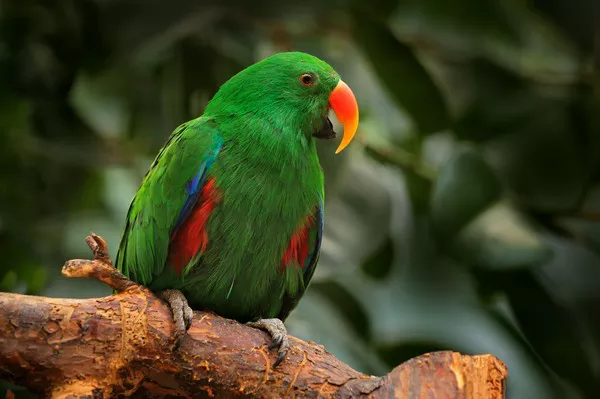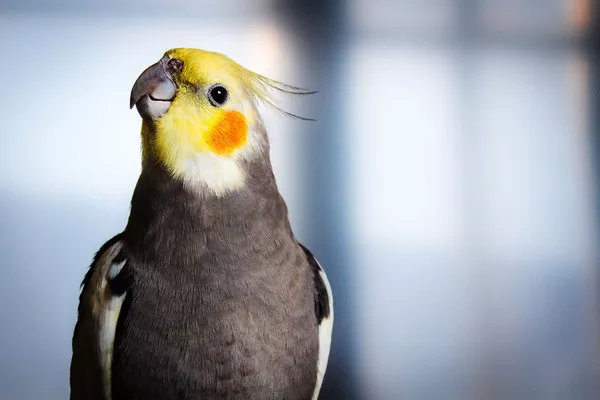Sun Conures, scientifically known as Aratinga solstitialis, are a popular species of parrot known for their vibrant, colorful plumage and affectionate nature. These medium-sized parrots are known to form strong bonds with their owners and can make excellent pets with the right training and socialization. However, like many parrots, Sun Conures may bite as a form of communication or due to fear, territorial behavior, or lack of proper training. Understanding why your Sun Conure bites and how to manage and prevent this behavior is essential to fostering a healthy and loving relationship with your pet.
In this guide, we will cover everything you need to know about training your Sun Conure not to bite, including the reasons behind biting, effective training techniques, tips for managing biting, and building trust with your bird. By following these steps, you will be able to minimize and eventually eliminate unwanted biting behaviors.
Understanding Why Sun Conures Bite
Before diving into the training techniques, it is important to understand why your Sun Conure might be biting in the first place. Biting is a natural behavior for birds, and it serves various purposes depending on the situation. Here are the most common reasons Sun Conures bite:
1. Fear or Anxiety
Fear is one of the most common reasons for biting. If your Sun Conure feels threatened or scared, it may resort to biting as a defense mechanism. This could happen if your bird is not used to new people, environments, or handling. For instance, if you are trying to pick your bird up when it is not in the mood, it may bite to communicate its discomfort.
2. Territorial Behavior
Sun Conures are territorial creatures and may become protective of their cage or certain areas of their environment. If they feel that their space is being invaded, they might bite to assert dominance and establish boundaries. This type of biting is often linked to the bird’s need for control over its environment.
3. Lack of Socialization
Sun Conures are social birds that thrive on interaction with their human companions. However, if they have not been properly socialized from a young age, they may develop biting habits as a way of communicating their discomfort or frustration. Birds that have not been exposed to different people, situations, or experiences may be more prone to biting due to fear of the unknown.
4. Overstimulation or Overhandling
Sometimes, a Sun Conure may bite due to overstimulation. If it is handled too much or too roughly, the bird might become agitated and bite as a way to signal that it wants to be left alone. Understanding your bird’s limits is important to prevent this kind of behavior.
5. Hormonal Changes
Hormonal behavior, especially in breeding season, is another reason why Sun Conures might become more aggressive and prone to biting. During mating season, these birds can become more territorial, possessive, and protective of their mates or nests. This can lead to increased biting, especially if the bird feels that its territory or mate is being threatened.
6. Attention-Seeking
Sometimes, Sun Conures bite as a way of getting attention from their owners. If they discover that biting causes a reaction from you—whether positive or negative—they might continue the behavior. This type of biting is often associated with boredom or the bird’s desire for interaction.
7. Pain or Illness
If your Sun Conure starts biting more than usual, it is important to consider the possibility of pain or illness. Birds cannot express their discomfort verbally, and biting can be a way for them to signal that something is wrong. If biting is accompanied by other signs of distress, such as lethargy, changes in eating habits, or feather plucking, you should consult with an avian veterinarian to rule out medical issues.
Step-by-Step Guide to Training Your Sun Conure Not to Bite
Now that we have an understanding of why Sun Conures bite, let’s look at how you can train your bird not to engage in this behavior. Training a Sun Conure requires patience, consistency, and positive reinforcement. Below are effective methods to train your bird:
1. Building Trust and Bonding with Your Sun Conure
The foundation of any successful training program is a strong, trusting relationship with your bird. If your Sun Conure does not trust you, it is more likely to bite out of fear or insecurity. Here are some tips for building trust:
Spend Time Together: The more time you spend with your Sun Conure, the more it will get to know you and feel comfortable in your presence. Sit near the cage, talk to your bird, and allow it to get used to your voice and presence.
Offer Treats and Rewards: Use positive reinforcement to create positive associations with you. Offer healthy treats like fruits, seeds, or pellets when your bird is calm and well-behaved. This will help your Sun Conure associate you with positive experiences.
Be Gentle and Calm: Birds are highly sensitive to body language and tone of voice. Always approach your Sun Conure slowly and gently, avoiding sudden movements that could startle it. Use a calm and soothing voice when interacting with your bird.
Allow Your Bird to Initiate Interactions: Let your Sun Conure come to you on its own terms. Don’t force interactions or handling; instead, allow your bird to approach you when it feels comfortable.
2. Positive Reinforcement Training
Positive reinforcement is one of the most effective methods for training your Sun Conure. This approach involves rewarding desirable behavior and ignoring or redirecting undesirable behavior. Here’s how to use positive reinforcement effectively:
Reward Desired Behavior: When your Sun Conure behaves in a way you want to encourage, immediately reward it with a treat or praise. For example, if your bird steps onto your hand calmly without biting, give it a treat. This will reinforce the behavior and increase the likelihood that it will happen again.
Ignore Biting: When your Sun Conure bites, do not react dramatically. This could give your bird attention, which may reinforce the behavior. Instead, gently but firmly say “no” and put the bird down or remove your hand. Wait for a moment before trying again. This helps teach your bird that biting results in negative consequences.
Use Clicker Training: Clicker training is a form of positive reinforcement that uses a small device that makes a clicking sound when pressed. The click is used to mark the exact moment of the desired behavior, followed by a treat. This helps your Sun Conure understand what behavior is being rewarded.
3. Teach Bite Inhibition
Bite inhibition is the process of teaching your Sun Conure to control the force of its bites. Birds naturally use their beaks to explore the world, but it is important to teach them not to bite too hard. Here’s how to do it:
Gentle Correction: If your Sun Conure bites too hard, immediately say “no” in a calm but firm voice. Gently withdraw your hand and give your bird a moment to calm down. Once it settles, offer it your hand again and reward it for gentle interaction.
Use the “No Biting” Cue: Consistently use a verbal cue like “no biting” or “gentle” whenever your bird exhibits biting behavior. Over time, your Sun Conure will learn the association between the cue and the behavior you want to discourage.
4. Desensitize to Handling
If your Sun Conure bites due to fear or anxiety when being handled, desensitization can help reduce this response. Here’s how to desensitize your bird to handling:
Start Slow: Begin by offering your hand to your Sun Conure without attempting to grab or pick it up. Allow your bird to explore your hand at its own pace. Do not force contact or handling.
Gradually Increase Contact: Over time, gradually increase the duration and nature of your interactions. You can move from letting your bird step onto your hand to gently petting or stroking it. Always reward calm behavior and provide positive reinforcement.
Use Target Training: Target training involves teaching your Sun Conure to touch a specific object, such as a stick or your finger, with its beak. This can help desensitize your bird to being handled, and it can also be a useful tool for redirecting unwanted behavior.
5. Provide Mental Stimulation and Enrichment
A bored Sun Conure is more likely to engage in undesirable behaviors like biting, especially attention-seeking biting. To prevent boredom, provide your bird with plenty of toys, puzzles, and activities to keep it mentally stimulated. Rotate toys regularly and introduce new items to encourage exploration.
6. Avoid Punishment
Punishment should never be used as a training method for your Sun Conure. Negative reinforcement, such as shouting, hitting, or using water sprays, can lead to fear and mistrust, which can make biting behavior worse. Instead, focus on reinforcing positive behavior and using gentle redirection when necessary.
7. Seek Professional Help if Needed
If you are struggling to train your Sun Conure or if biting persists despite your best efforts, it may be time to consult a professional. An avian behaviorist or a trainer with experience working with parrots can help you assess the underlying cause of the biting behavior and provide tailored solutions.
Conclusion
Training a Sun Conure not to bite requires patience, understanding, and consistency. By focusing on building trust, using positive reinforcement, and addressing the root causes of biting, you can help your bird learn appropriate behavior. Remember that every bird is different, so be prepared to adapt your training methods to suit your individual pet. With time and effort, your Sun Conure can become a loving and well-behaved companion.
Related Topics:




















